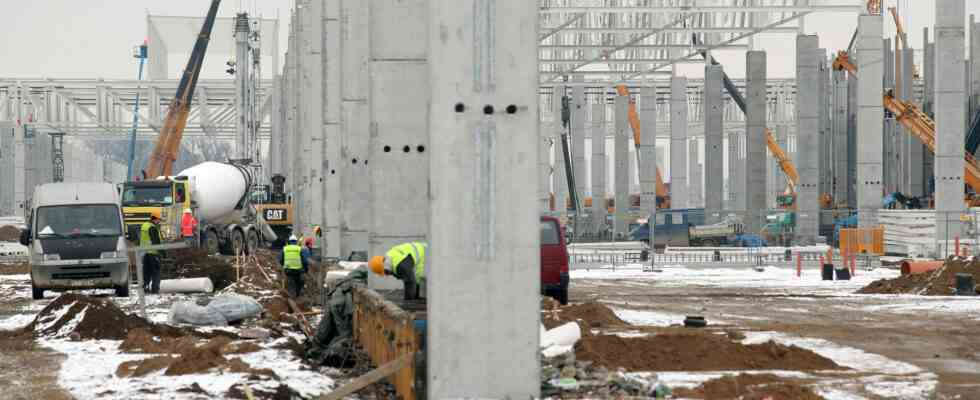Status: 03/10/2022 5:23 p.m
Thousands of Ukrainian workers leave their factories in Poland to go to war. This puts the construction industry and the transport industry in real trouble. Refugee Ukrainians cannot simply step in.
They are the fuel in the combustion chambers of Poland’s ongoing boom of the past decades, which has promoted Poland from the poorhouse to the European middle class: Ukrainian guest workers like Sergei Serochin. “I’ve been working here for 29 years. I came here for the first time in 1993, that’s how long it’s been,” he says in front of what will be his last construction site in Warsaw.
“I come from a town near Hrubieszow, twelve kilometers from the Ukrainian border. My wife and sisters stayed.” But now Sergej is out until further notice: he is going to Ukraine to defend his country. Many thousands, probably tens of thousands, are doing the same, and even more are about to jump.
“No additional personnel basis”
The Polish construction industry, which had previously suffered from a shortage of skilled workers and higher prices for building materials, was hit like a blow in the middle of the economic cycle. “We don’t have any additional personnel base. Our base consisted of workers from Belarus and Ukraine,” explains Jan Stylinski, head of the Polish Construction Employers’ Association. “You can even say that the Polish construction industry is based on workers from the east: around 400,000 workers, almost every third worker, come from there.”
There are cases where the workers only said that they would no longer come to work. And that was it then. But there are also positive phenomena. Companies have given their workers vacation or continued to pay wages to the Polish account, even though they are no longer there. “Some companies even helped bring their employees’ families to Poland,” says Stylinski.
Apparently there is enough work
The Russian attack also changed everything in the transport industry, where many Ukrainians also work: used to driving west with their trucks, many drove east when the war began to bring relatives to safety. “We have a transport company where Ukrainians work. These people fetched their wives,” says the mayor of the small Silesian town of Lesnica, Lukasz Jastrzebski. They would ask for work and hoped that something would turn up since their husbands had already worked here. The children also wanted to go to kindergarten.
So could the women partially replace the Ukrainian men who have now gone to war and are absent from the companies? The will to work is great, confirms Renata Nachtygal from the social welfare office in Krapkowice, another small town in Silesia. “The women came with a suitcase or a small bag, they are modest, scared and afraid. They say thank you for everything,” she says.
After recovering from their initial shock, they would ask for work. Nightygal then advises them to sleep in. There is enough work, says the head of social services – for example in sales. In her office, too, she could use three or four women immediately.
Many companies will have to close
But there are definitely difficulties: the Polish language is related to the Ukrainian, but different. The process of obtaining a work permit sometimes takes months. The question of childcare is often unresolved. Since Ukrainians often work in classic male jobs, their wives can rarely fill in exactly where gaps are now becoming abysses.
Social services chief Nachtygal talks about an acquaintance who owns a transport company. His men had all left. He would now have no one to work with. Many companies would also have to close in construction, according to the industry. Industry representative Stylinski says that the few remaining construction workers are now being wooed with significantly higher wage promises. But many companies would no longer be able to keep up.
War instead of a construction site: emigration exacerbates the shortage of skilled workers in Poland
Jan Pallokat, ARD Warsaw, March 10, 2022 5:54 p.m

